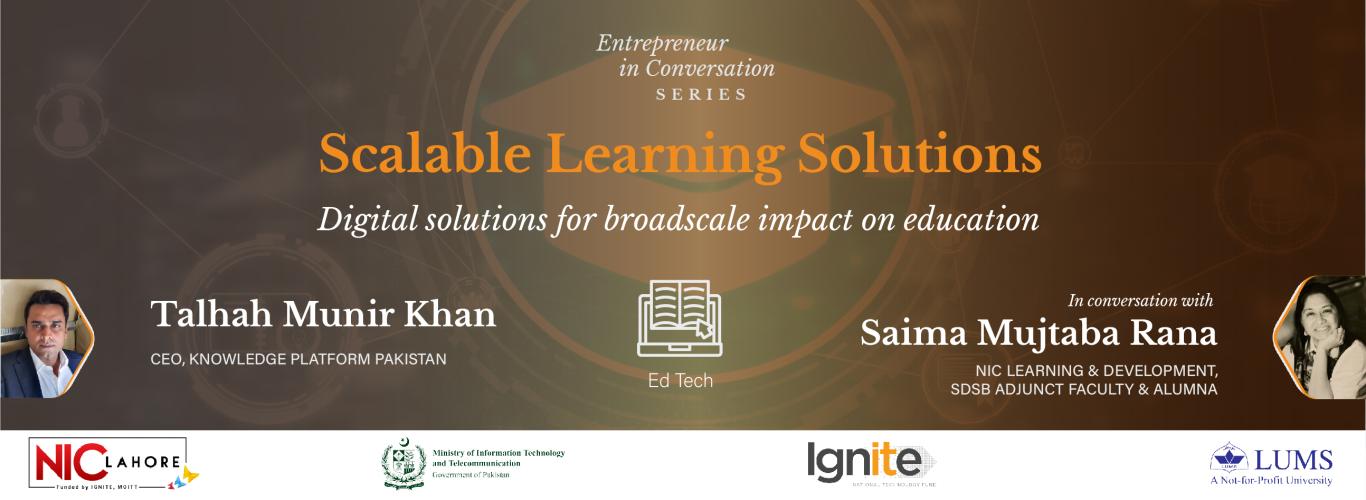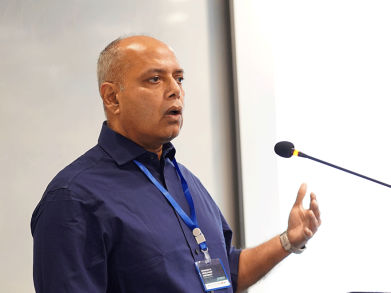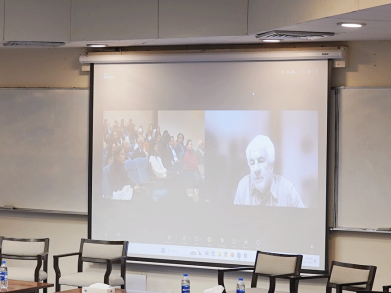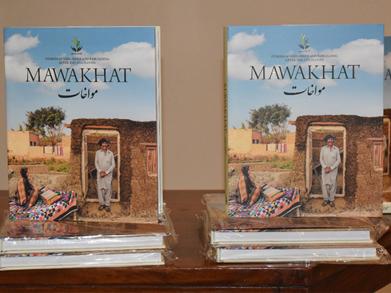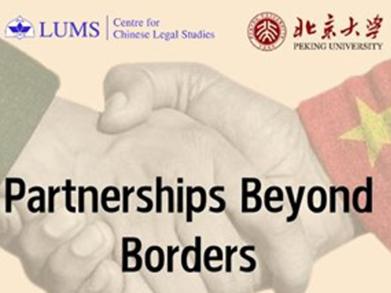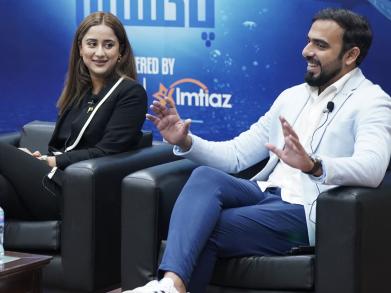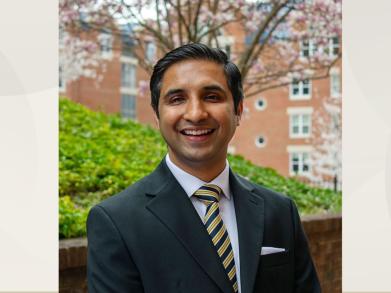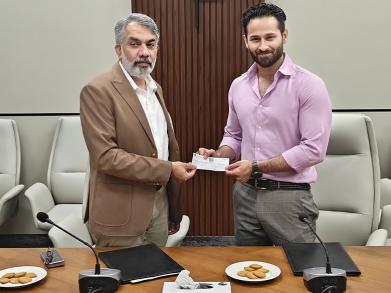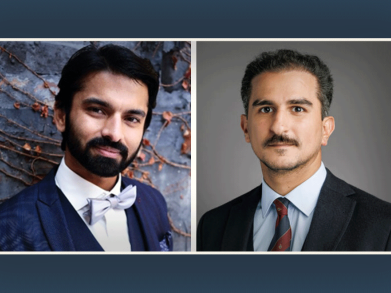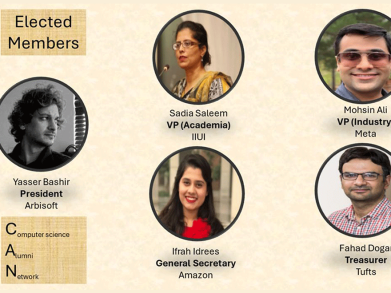Transforming the Education Sector Through Edtech
During National Incubation Center Lahore's (NICL) Entrepreneur in Conversation session held on January 13, Talha Munir Khan, CEO of Knowledge Platform Pakistan, made a passionate case for using digital technology to transform Pakistan’s education sector and enhance teaching and learning across the board.
“I think education is not just about transferring knowledge. Kids also go to school for a social experience. Just mastering the particular skills we’ve defined for each grade in our standardised education system isn’t everything. In my opinion, teaching children 21st century skills is very important. The real skills are how to critically observe things and think about them.”
Mr. Khan is also CTO at Knowledge Platform Global, a Singapore-based company and one of Asia Pacific’s leading next-generation learning platforms that provides holistic learning solutions to clients in the form of strategy, content, technology, and support. In Pakistan, Mr. Khan and his team have set-up the country’s first cloud-based learning platform and are providing schools, teachers and students blended learning solutions that help enhance their academic experience.
Schools that use Knowledge Platform’s Learn Smart Classroom product are provided with everything including a laptop and projector, complete with access to top-quality content, assessments based on the national curriculum, gamified lessons and educational videos. The software also collects data in real-time, giving teachers and principals valuable insight into what kind of learning is happening in the classrooms and where a particular student might be struggling and may need extra support.
Through its Teach Smart Pakistan product, Knowledge Platform also provides schools with a comprehensive teacher training programme that enables teachers to enhance their knowledge in their respective fields. Additionally, students can directly access thousands of dynamic lesson plans through a gamified learning platform called Learn Smart Pakistan. Content on most of these products is available offline as well because Mr. Khan strongly believes it is important to provide solutions in a local context, and in Pakistan, the internet and appropriate bandwidth isn’t available in a lot of schools, both private and public.
Even though the response to their solutions has been overwhelmingly positive from both teachers and students, as well as administrators, the change in mindset towards digital solutions took some time. “I think it has been a step-by-step journey. When we started, we had 10-15 schools. Then in 2015, we took the product to China as a joint venture. We started with one public school in Shanghai and now we have 1000 plus schools and over 400,000 students there. When we came back in 2018, we found that people were more ready to accept that technology is changing the way we live and started realising that they cannot avoid the use of technology in education for long,” explains Mr. Khan.
He further acknowledged that behavioural change can be very hard for a lot of people, and is even more frustrating and overwhelming for teachers who have been teaching a certain way for decades now. However, providing them with guidance and support every step of the way can ease the transition and quickly turn them into believers of the technology. “On a monthly basis, our team visits the school that is using our solution. It goes and trains new teachers, and also observes how the teachers are using the solution. We keep connected through WhatsApp groups with the schools. So, if a teacher faces an issue, he or she doesn’t have to wait, but gets in touch with us through WhatsApp, and we solve the issue for them, or if required, physically visit the school.”
He also reassured that this solution is a blended learning model, not a complete transition to digital and in no way an attempt to make a teacher’s role obsolete. “We’re not replacing teachers, we’re empowering them. Technology helps with knowledge transfer but other things, like giving feedback, building student’s confidence, changing their behaviour, and a lot of things that are part of a teacher’s role cannot be replaced by technology.”
COVID-19 made the necessity of digital solutions to learning even more apparent and Knowledge Platform was perfectly positioned to deliver. Mr. Khan shared that this last year has seen greater market penetration of their product. “Once COVID-19 came around our focus shifted to launch an online-only version of this product to help schools set up their classes, called Virtual Campus. Since April, we have about 78,000 students. Before the pandemic, we were just in the main cities because that was where our on-ground support was. But now we have schools in different parts of the country including Gilgit Baltistan, Quetta, and Bahawalpur.”
Mr. Khan also shared the success of Knowledge Platform’s collaboration with Jazz for their Smart School Project. Jazz took the project to different exhibitions abroad where it won 4 international awards. “The learning improvement was significant. We made a digital centre in each school, and more than a thousand teachers have used the platform. Not only teachers, but we also trained principals and area education officers on how they can use the dashboard to monitor the classrooms on their phones. This has been a very successful example of large scale blended learning implementation.”
Apart from the project with Jazz, it was initial funding from Ilm Ideas that gave their start-up the push it needed. One advice that Mr. Khan gives while talking about going for funding and support is to never give up and keep learning. “It was difficult to get money from donors but we didn’t lose heart. When we applied for one grant and failed, we went back to them, we asked them what we did wrong, what was wrong in our proposal, what were they expecting? Nobody does that. When you apply for a grant, you’re not selected, how many people go meet them and ask what we did wrong, what should we improve on. We applied twice or thrice after the first grant and then we got selected.”
However, there is still a long way to go to make technology a significant part of the educational landscape in Pakistan and there are many challenges that need to be addressed. Problems that Mr. Khan and his team are eager to solve, “We realised that infrastructure is crucial for the solutions we are making. Our kids don’t have the devices or internet access, except for a small minority. Thus, we’re trying to launch an initiative where one device/tablet per family should be available on an instalment basis. If we don’t address the problems for our client base, our product will not grow.”
The Q&A part of the session provided many interesting insights but one thing Mr. Khan strongly emphasised was the importance of not only focusing on the people you have on your team but also who you are as a person and leader. “As individuals and as team members, this is something you need to realise. How will you bring together people’s strengths, how will you complement the weaknesses, what people will be in what roles, what role will you play yourself. So I think at a personal level, my advice would be to have faith in yourself first and second know yourself.”
To watch the session, click here.

